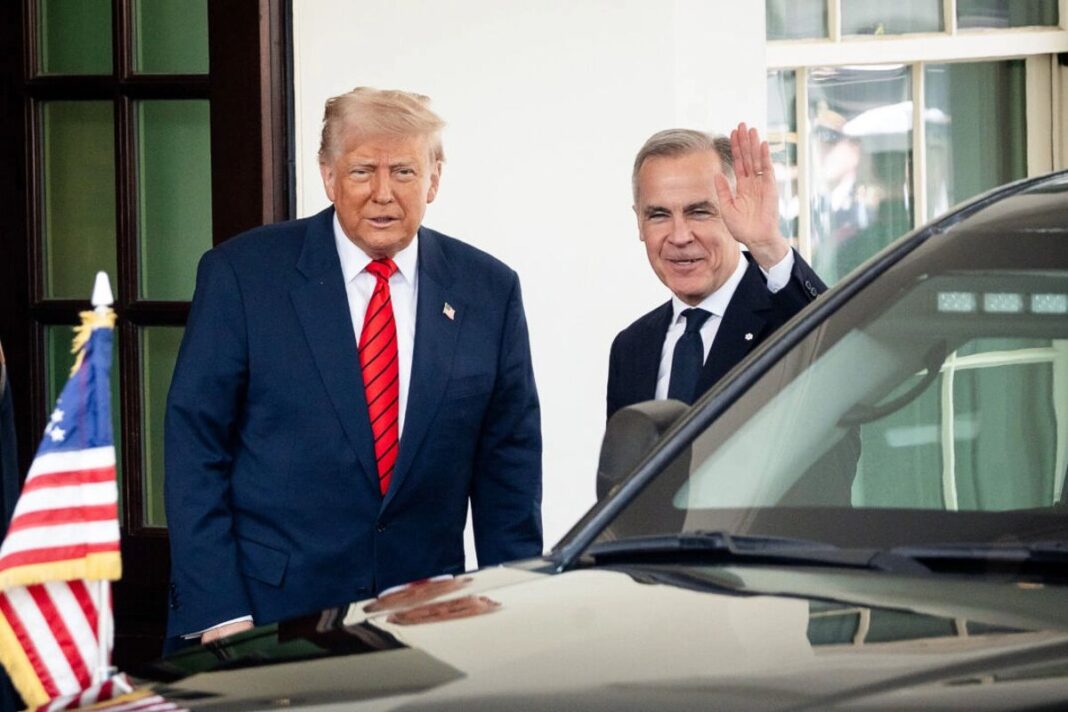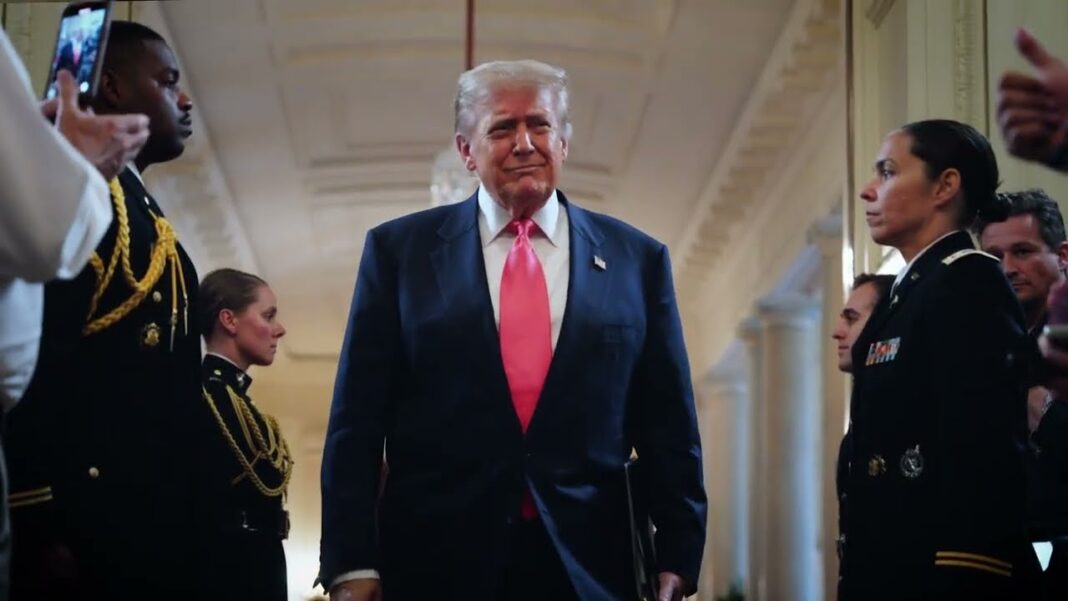On June 22, 2025, President Trump did what no other U.S. President dared do: he ordered the bombing of three nuclear facilities in Iran. Trump asserts our pilots obliterated the facilities to protect national security. Fifty-six percent of Americans disapprove of the bombing. While neutralizing Iran’s regime of terror has been an issue of concern since the 1979 Hostage crisis, bombing it has generally not received majority public support. In fact, after John McCain, in his 2008 presidential campaign, sang a rendition of the old Beach Boys’ song, “Bomb, Bomb, Bomb Iran,” his campaign tanked, and it never recovered. Trump, however, is so impressed with his decision that he re-released the song on Truth Social with a video of bombs dropping on Iran. While the theatrics are entertaining, the U.S. is in its 55th year (since Vietnam) of bombing countries around the world. While the bombing was done in the name of national security, it is an American tragedy since Congress has de facto amended the Constitution by delegating its Article I, section 8 authority “To Declare War” to the President.
The most solemn decision any government official makes is sending our young citizens to war. Asking citizens to die for their country is the most anyone can ask of another human. Unfortunately, the cowardice of Congress, which remains silent in war-making decisions, is a violation of its Constitutional duty. The United States fights more wars than any other nation on earth. Since the Korean War of 1950, it has been involved in 32 wars. The U.S. has been absent from war for only 14 of the past 73 years. More terrifying, however, is that Congress usually funds wars with little debate over the nation’s real security needs or financial considerations.
Notwithstanding whatever happens with Iran, Congress is also funding wars in Ukraine and Israel.
Congress must reclaim the sole power to declare war.
After Vietnam, Congress enacted the War Powers Act of 1973 specifically to prevent another long but undeclared Vietnam War situation. Under the Act, Congress grants the President, in the absence of a Declaration of War, limited powers to use force where the circumstances indicate imminent involvement in hostilities. This grant of power means that the President can take military action without a formal declaration of war from Congress. When a President relies on this law, they must submit to Congress a report stating the reasons for using the armed forces, a statement of legal authority, and the scope and duration of the conflict. The submission of the information to Congress triggers a 60-day time limit on using force unless Congress extends the time.
Similarly, in 2001, Congress enacted the Authorized for Use of Military Force Against Terrorists (AUMF), which authorized the President to use all necessary and appropriate force against nations, persons, or organizations that carried out the 2001 terrorist attacks against the U.S. This act has been used to justify many military actions in various countries, including Afghanistan and Iraq.
President Trump based his bombing on his Article II executive power rather than the War Powers Act or AUMF, so he did not have to report to Congress on his actions or abide by any congressionally established deadlines. As a result, President Trump not only ignored Congress but also disregarded the several efforts enacted to ensure some minimal involvement in war-making decisions. Again, the tragedy is not that the President took decisive action; it is that the institution of Congress did not raise a whimper of concern over being left out of the decision-making. More pitiful, however, Senator Kaine introduced a War Powers Resolution to require Congress to debate and vote on whether the President could strike Iran with the missiles. Republicans voted it down. Congress did not want to debate the hostilities.
Under the current de facto amended Constitution, wars are initiated by the President, who acts as if these powers are so broad that they authorize almost any hostile action against another country or groups deemed terrorists for any period. Once Congress delegates such powers to the President, it limits its ability to stop a war once the President has started it unless it can pass a Resolution of Disapproval to halt the war and the President signs it into law. Since the President can veto the Resolution, the practical effect is to require Congress to secure two-thirds of the votes of both houses of Congress to stop a war. Its other option is to defund the war, which is what happened with Vietnam.
Historical Context. The U.S. has existed as a nation for 234 years since the ratification of the Constitution. During that time, it has been at war for 138 years. Only five wars, totaling 32 years of war, were fought under a congressional declaration of war: the War of 1812, the Mexican-American War, the Spanish-American War, and World War I and World War II. This historical context should prompt us to reflect on the significant shift in war-making powers from Congress to the President.
Almost half of the national debt is attributed to undeclared wars. A staggering $16 trillion of our $36 trillion national debt can be attributed to these wars. Every taxpayer is left with a $130,000 tab that accompanies undeclared wars. This debt has significant implications for the economy, as it limits the government’s ability to invest in other areas such as education, healthcare, and infrastructure. It also increases the burden on future generations who will have to repay this debt.
The unfortunate aspect of this situation is that as much as one-half of the national debt might have been avoided if our presidents and Congress had been willing to debate the critical issue of war or peace. The many wars include:
Take the Vietnam War (1965-1973) as an example. The U.S. was not attacked in the Gulf of Tonkin as President Johnson claimed, yet that lie was his excuse for waging a war against North Vietnam that killed 58,220 American soldiers, wounded 153,303, and left another 1,643 missing. The war cost U.S. citizens $168 billion in the 1960s-1970s, which would be over $1 trillion today. The costs of that war continue today, with around $22 billion in compensation for injured veterans and lifetime benefits for their families.
Afghanistan and the Global War on Terror (2001 to 2022). After terrorists crashed airplanes into the Twin Towers in NYC and the Pentagon on September 11, 2001, the U.S. invaded Afghanistan, the home of the terrorists. The global war on terror began and lasted for two decades. The U.S. stayed at war in the Middle East for 18 years after President Bush declared ‘Mission Accomplished.’ Its cost is estimated at $8 trillion and over 900,000 deaths. Even after the war ended, the U.S. estimates $2.2 trillion for the future care of our veterans.
The Iraq War (2003 – 2011). The Iraq War was the result of the U.S. Intelligence Agencies falsely telling the American people that Saddam Hussein had Weapons of Mass Destruction (“WMD”). Hussein did not have any WMD. Instead, the war was President Bush’s obsession to remove Hussein from power to correct what he believed was a mistake by Father Bush not to invade Iraq and eliminate Saddam Hussein. The cost of the Iraq war was $1.8 trillion and cost 550,000 lives.
Ukraine War (2022-present). So far, the U.S. has spent $175 billion on the Ukraine war with Russia. The final cost of war is unknown, and the cost of rebuilding Ukraine will be in the hundreds of billions or trillions.
Additional Wars (1950-2022). In addition to major undeclared wars, the U.S. has been involved in the Korean War, Laotian Civil War, Permesta Rebellion, Lebanon crisis, Bay of Pigs, Dominican Civil War, Korean DMZ conflict, Cambodian Civil War, Lebanese Armed Forces, Grenada, Libya, Tanker war, invasion of Panama, Somali, Bosnian and Croatian wars, Kosovo war, intervention in Yemen, intervention in North-West Pakistan, second intervention in Somali Civil War, Ocean Shield, Operation Observant Compass (Uganda), intervention in Niger, Syrian Civil War, second intervention in Libya, Operation Prosperity Guardian (Red Sea conflict).
And there were more wars. President Reagan deployed troops to El Salvador but did not submit a report to Congress or comply with a withdrawal requirement. President George H.W. Bush sent troops to the Middle East, and President Clinton sent troops to the former Yugoslavia. Both asserted they acted under U.N. authority and were not subject to congressional time limits.
Presidents George W. Bush, Obama, and Trump I, relied on AUMF at least 39 times for actions in 19 countries. Lawsuits were filed to enforce the notification provisions of the War Powers Act. The courts dismissed the lawsuits, stating that the question was to be determined by the respective branches of government. The Supreme Court’s reliance on the political question doctrine is an excellent example of how the courts have sanctioned the expansion of presidential powers for over two centuries.
Governments Make Mistakes; unfortunately, the U.S. federal government does not learn from them. The U.S. federal government appears incapable of learning from its mistakes. It involves itself in war after war, yet Congress rarely debates the need for war before the President sends money, equipment, troops, or some combination of war assistance to the fight.
The American people deserve more for the $6 trillion they send to Washington each year and the $36 trillion the federal government borrowed in our name. Asking Congress to fulfill its constitutional responsibility of declaring war before the President sends troops and equipment to fight is not unreasonable. Demanding that our leaders tell us the truth, rather than lies, about the government’s war-making machinery is not unreasonable. Unfortunately, Congress appears content to live with undeclared wars, perpetual borrowing, and a state of cowardice. Congress is unwilling to rescind the War Powers Act and cannot gather the two-thirds vote required in Congress to override a presidential veto. The alternative is that Congress can always stop undeclared wars by refusing to appropriate money for their continuation. It’s time for Congress to accept responsibility for matters of war and peace.
William L. Kovacs, author of Devolution of Power: Rolling Back the Federal State to Preserve the Republic. It received five stars from Readers’ Favorite. His previous book, Reform the Kakistocracy, received the 2021 Independent Press Award for Political/Social Change. He served as senior vice president for the U.S. Chamber of Commerce and chief counsel to a congressional committee. He can be contacted at wlk@ReformTheKakistocracy.com







